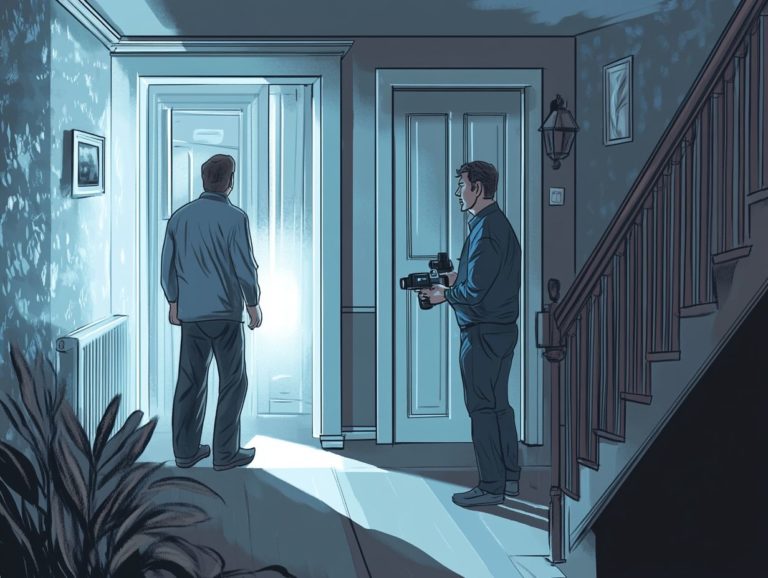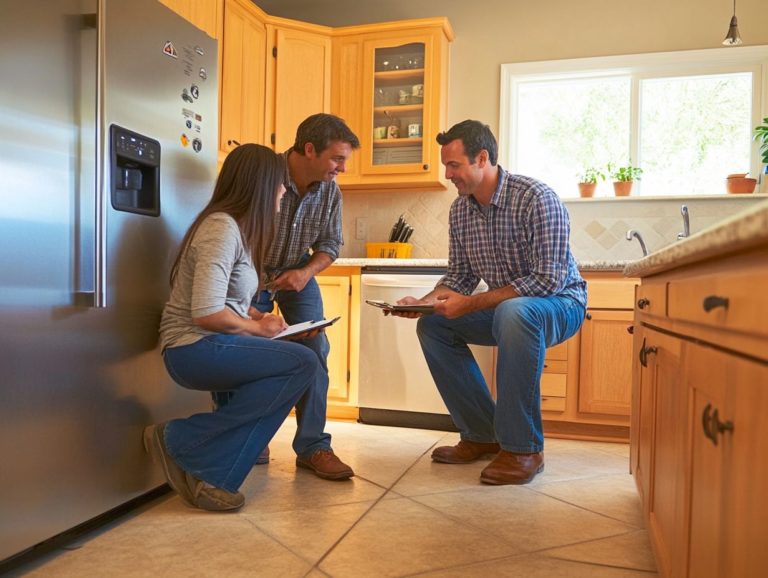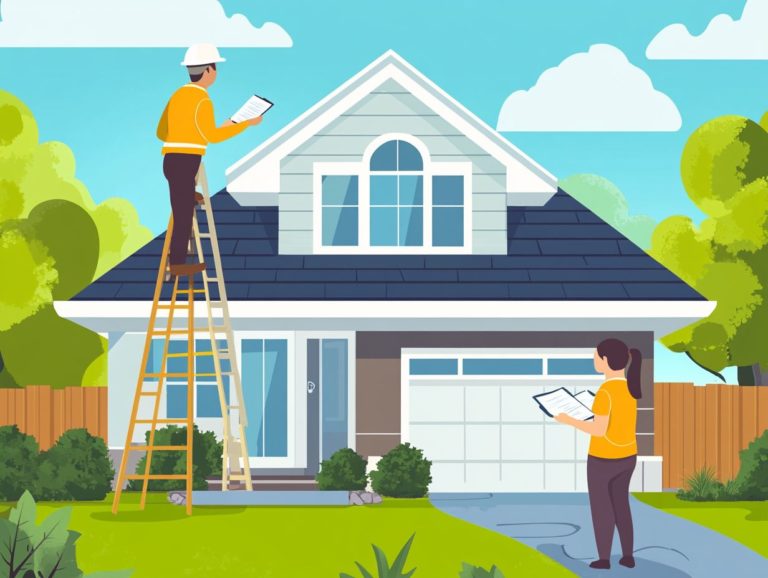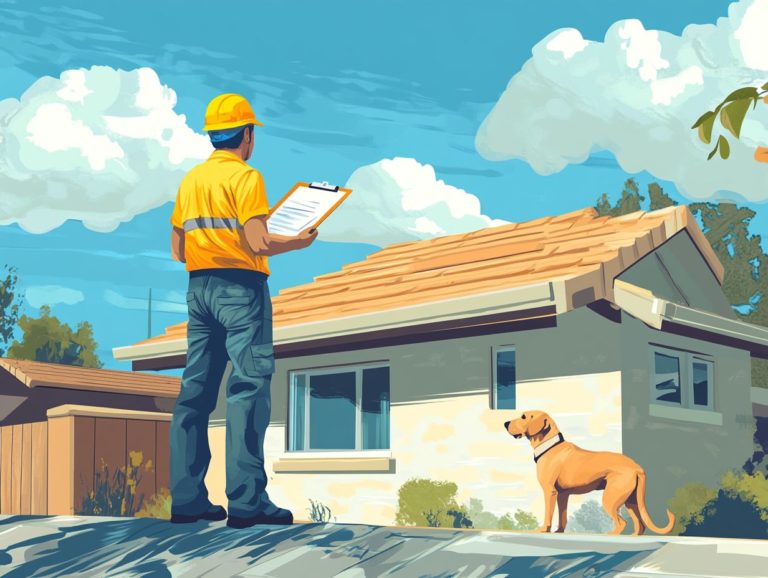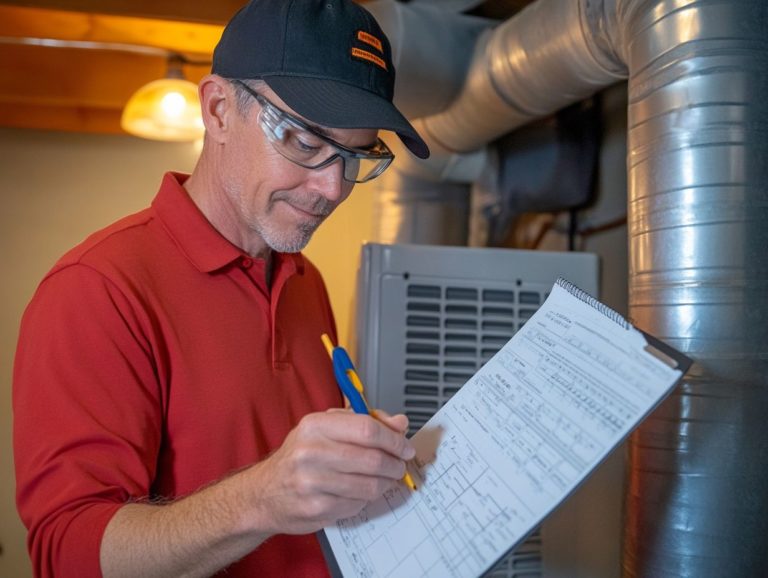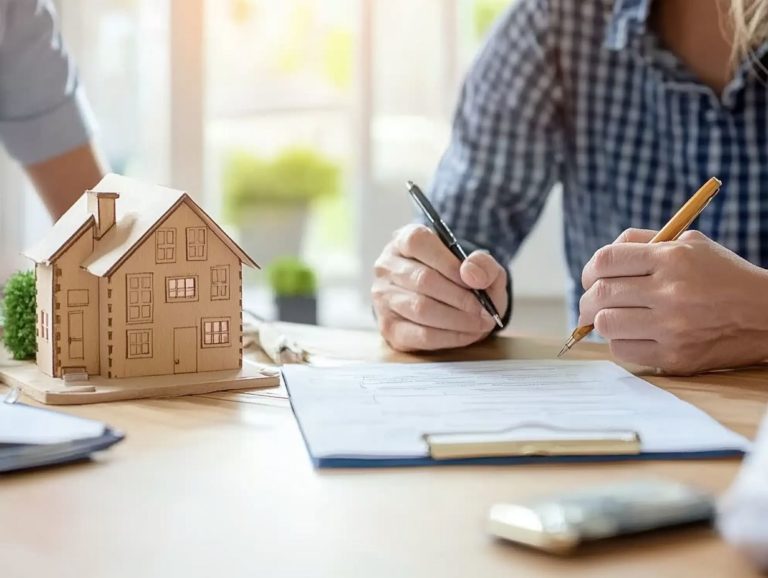How to Avoid Home Inspection Scams
Home inspections play a vital role in the home-buying journey, offering you invaluable peace of mind about your investment. However, the industry has its pitfalls; scams can catch unwary buyers off guard. From fraudulent inspectors to hidden fees, these tricky practices can shake your confidence and jeopardize your financial security.
This article explores common home inspection scams and provides essential tips to safeguard yourself. By staying informed, you can ensure that your home-buying experience remains safe and successful.
Contents
- Key Takeaways:
- Understanding Home Inspection Scams
- Common Scams to Look Out For
- How to Protect Yourself from Scams
- What to Expect from a Legitimate Home Inspection
- Steps to Take if You Suspect a Scam
- Frequently Asked Questions
- What are common warning signs of a home inspection scam?
- How can I verify the legitimacy of a home inspector?
- What should I look for in a home inspection contract?
- What should I do if I suspect a home inspection scam?
- Are there any red flags to be aware of during the home inspection process?
- How can I protect myself from falling victim to a home inspection scam?
Key Takeaways:

Research home inspection companies carefully to avoid scams.
Always check for proof of qualifications and references.
If you suspect a scam, notify authorities immediately to protect yourself and others.
Understanding Home Inspection Scams
Home inspection scams pose considerable risks for you as a prospective homebuyer, especially in areas like Delaware, where understanding how to choose a home inspector is essential for building trust in local real estate professionals.
These scams can trick first-time buyers into paying inflated inspection fees for subpar services, resulting in serious safety concerns and financial setbacks.
It’s vital to understand the home inspection process and recognize the warning signs of scams, particularly as you navigate relationships with real estate agents and inspectors. Knowing how to prepare for a home inspection can also help ensure a smoother experience.
What are Home Inspection Scams?
Home inspection scams involve tricky practices that can ensnare you during the inspection process, often leading to unnecessary expenses or inflated repair costs. To avoid these pitfalls, learn how to prepare for a successful home inspection. These scams often feature biased inspectors with conflicts of interest tied to sellers or real estate agents, undermining the integrity of the inspection process.
Scammers may masquerade as certified inspectors, flashing fake credentials to gain your trust. To avoid this, it’s crucial to know how to find reliable home inspection services. Otherwise, you could end up paying for services that don’t exist or being misled about the actual condition of a home.
For example, a scammer might conduct a hasty inspection and then charge you an outrageous fee for a misleading report. Some even twist their findings to suggest costly repairs that aren t needed, exploiting your eagerness to settle into your new space.
Such tactics can lead to substantial financial losses and prolonged stress for unsuspecting clients like you.
Common Scams to Look Out For
As a homebuyer, be vigilant about common scams that can arise during the inspection process.
Watch out for excessive inspection fees, hidden charges, and upselling tactics that could catch you off guard. Scammers may impersonate legitimate inspectors, presenting counterfeit inspection reports or suggesting unnecessary add-ons to inflate costs. To avoid these pitfalls, check out this guide on how to find affordable home inspection services to ensure a fair evaluation of the property.
Staying informed and cautious will empower you to navigate these potential pitfalls effectively.
Fake Inspectors and Fake Reports
Fake inspectors pose a significant risk for you, potentially providing misleading inspection reports that misrepresent the true condition of a property. Often lacking the necessary qualifications and certifications, these individuals can lead you into a financial minefield with their fraudulent assessments, resulting in considerable repair expenses down the line.
As you embark on the journey of purchasing a home, recognizing the signs of unqualified inspectors is essential for your peace of mind. A legitimate inspector should hold state certification and relevant experience, and they should readily provide references and sample reports upon your request.
Verify these credentials carefully to protect yourself from potentially devastating financial repercussions stemming from hidden issues that may have been overlooked or misrepresented. Consumer education is key, arming you with the knowledge needed to differentiate between qualified professionals and possible scams.
Understanding what s at stake is crucial; relying on a fraudulent report can lead to unexpected costs that burden you with financial strains and emotional distress.
Hidden Fees and Upselling

Hidden fees and upselling tactics are common tricks employed by some less-than-reputable home inspectors. These practices can inflate the cost of services significantly.
The unexpected repair bills can strain your finances, especially if you’re a first-time homebuyer.
These sneaky charges often include costs for essential services like radon testing, mold assessments, or additional inspections. They are presented as must-haves but may not be necessary for every property.
For instance, you might see a standard inspection advertised at an enticingly low base price. However, once they add on extras like thermal imaging or comprehensive pest control inspections, the final bill can be quite shocking.
This lack of clarity in fee structures underscores the need for transparency. As a prospective buyer, request detailed breakdowns of any proposed fees. Open negotiation gives you the power to seek legitimate inspection services while avoiding unnecessary extras, ultimately allowing you to make informed decisions.
How to Protect Yourself from Scams
Protecting yourself from home inspection scams requires thorough research and careful vetting of inspection companies. Additionally, knowing how to make the most of your home inspection can further safeguard your investment.
Partnering with qualified safety inspectors who uphold established inspection standards is essential. By proactively requesting credentials and references, you can significantly reduce the likelihood of falling victim to scams.
Research and Vet Inspection Companies
To ensure a reliable home inspection, conduct thorough research and carefully vet potential inspection companies.
Start by examining their qualifications and reviews. Utilizing resources like the Better Business Bureau and the American Society of Home Inspectors provides valuable insights into the credibility of inspectors.
Begin by exploring each company s website to gather information about their services and certifications. Pay close attention to the inspectors experience, including how long they ve been in the field and any specialized training they may have completed.
Reading client testimonials will help you gauge overall satisfaction levels from previous customers. To further verify an inspection company s legitimacy, check for any complaints filed with consumer protection agencies.
These formal resources can significantly influence your decision-making process, ensuring you select a qualified inspector to protect your investment.
What to Expect from a Legitimate Home Inspection
A legitimate home inspection involves a detailed inspection of the property, using established methods to assess various home systems such as plumbing, electrical systems, heating, ventilation, and air conditioning (HVAC), and roofing.
As a homebuyer, expect to receive detailed reports that highlight potential safety concerns and property defects requiring attention. You must know what to look for to protect your investment!
Standard Procedures and Reports
During a home inspection, standard procedures involve systematically assessing the property s condition and documenting any potential issues in a detailed report for your review. These reports provide valuable insights into the property’s state and estimate repair expenses.
The inspector typically starts by evaluating the home’s exterior, including aspects like the foundation, roof, and drainage systems. They then move indoors to examine the plumbing, electrical systems, and HVAC units.
Each section of the inspection report highlights significant concerns, along with recommendations for addressing them. It s essential for inspectors to adhere to established practices and standards to guarantee a thorough evaluation.
This diligence provides you with peace of mind and helps you make informed decisions about your property.
Steps to Take if You Suspect a Scam

If you think you re facing a scam during your home inspection, act quickly. Report any suspicious activity to the authorities to protect yourself and others.
Keeping a detailed record of any fraudulent activities can prove invaluable should you decide to pursue legal action against the party involved.
Don t wait; do your research today to ensure you re working with trustworthy inspectors!
Contact Authorities and Report the Scam
Contacting authorities and reporting the scam is an essential step in tackling fraudulent home inspection practices. By notifying organizations like the Consumer Financial Protection Bureau and the Better Business Bureau, you protect your interests and help shield other potential victims from similar misconduct.
To report such scams effectively, gather as much documentation as possible. Compile contracts, correspondence, receipts, and any photographs that capture the deceitful practices at play.
Details about the scammer such as their name, contact information, and any known affiliations can significantly strengthen your report. By taking these actions, you contribute to consumer protection and help in the broader movement aimed at eradicating fraudulent activities.
Consider Legal Steps if Necessary
If you’ve encountered home inspector fraud, it may be important to consider legal steps to recover repair costs or address breaches in inspection agreements. Consulting with legal professionals who specialize in consumer protection can provide valuable guidance on the best course of action.
Understanding the various legal options available allows you to navigate your situation more effectively. One option worth exploring is filing a complaint with state licensing boards, which can investigate unethical practices by home inspectors. Pursuing a civil lawsuit may also be a viable path for seeking damages related to your financial losses.
When selecting a qualified attorney, look for someone with experience in real estate law and a proven track record in handling consumer fraud cases. This ensures you gain valuable insights and can effectively assess your case’s merits.
Frequently Asked Questions
What are common warning signs of a home inspection scam?
Common warning signs of a home inspection scam include a lack of credentials or certifications, low prices compared to other inspectors, and pressure to use specific repair services. To protect yourself, it’s wise to understand how to prepare for your home inspection and be cautious of inspectors who offer to waive or reduce their fees if you agree to use their recommended repair services.
How can I verify the legitimacy of a home inspector?
To verify a home inspector’s legitimacy, ask for their credentials and certifications, check online reviews and ratings, and inquire about their experience and training. Request references from past clients to better understand their work quality and reputation.

What should I look for in a home inspection contract?
When reviewing a home inspection contract, ensure it includes details such as the date, time, location of the inspection, and the inspector’s name and contact information. It should outline the inspection’s scope and fees, including any additional charges or hidden costs.
What should I do if I suspect a home inspection scam?
If you suspect a home inspection scam, first gather as much evidence as possible, including receipts, contracts, and communications with the inspector. Next, report the scam to your state’s regulatory agency or the National Association of Home Inspectors. You may also file a complaint with the Better Business Bureau.
Are there any red flags to be aware of during the home inspection process?
Red flags during the home inspection process include the inspector not allowing you to be present, rushing through the process, and providing vague or incomplete reports. Watch for any conflicts of interest, such as financial ties to a recommended repair service.
How can I protect myself from falling victim to a home inspection scam?
To protect yourself from a home inspection scam, research and choose a reputable, certified inspector. Always review the contract carefully and ask for clarification if needed. Additionally, knowing how to get the most out of your home inspection is recommended; be present during the inspection and request a detailed report with photos and descriptions of any issues found.
Stay vigilant and take proactive steps to protect your investment!

